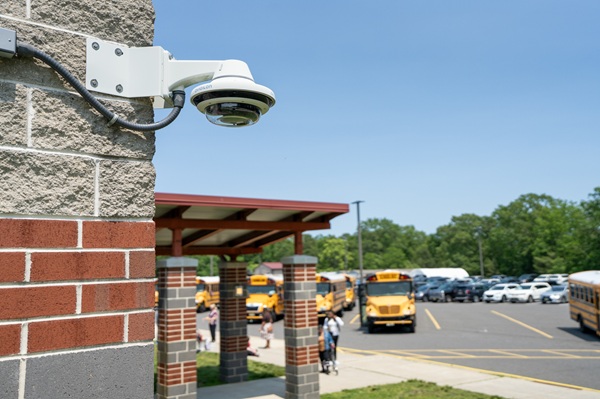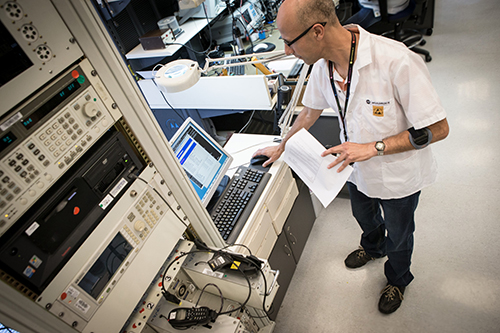While the calendar says it’s summer (and the thrilled students and frazzled parents in your neighborhood confirm this), school safety professionals are already looking ahead to the fall. Pursuing the necessary technology and policies to preserve staff and student safety never takes a holiday.
Since many school safety improvements are being deployed right now—when buildings are empty and students and teachers won’t be disturbed—here are some tips to consider:
Know What You Have
Understand your current security measures and communications equipment, including radios and related infrastructure; surveillance cameras, video management systems, metal detectors, GPS tracking systems, access control systems, mass notification systems, and so on. If you don’t know how to use it—or it doesn’t work—that’s a gap you need to address.
Are You Using a Polaroid in a 4K World?
Technology changes rapidly, especially in the video arena. If your current camera system shows you gray, fuzzy, person-shaped objects, that video is not going to be of much use. With the high resolution cameras and video analytics available today, an entire campus can be covered with far fewer cameras, and those cameras can even alert you when something unusual is happening.
Secure Your Front Door
The easiest way to manage safety threats within a school is to not allow the threats into the school in the first place, which is why fully 94% of public schools control access to their buildings. However, “access control” can mean many different things. Evaluate this crucial line of defense for your facility. Do gatekeepers have both video and audio access to visitors before allowing them entry?
Secure Your Back Doors
The main entrance is only half the battle. How are you managing other entry points into the building? Are they monitored by teachers when open? When closed and locked, do they remain closed and locked, or are there a variety of “door holders” (rocks, weights, music stands, chairs) near your entrances to prop open doors for anyone to enter? Does your access system notify you when a door is propped open?
First Responder Contact Points
Typically, only a few members of your security staff and administration will be able to directly contact first responders on their radio network. Assess who those individuals are, and where they are typically found. Do you have gaps? Wings or even entire buildings without a staff member who can communicate with first responders on their radios? Consider expanding or redistributing that pool of individuals for maximum coverage.
File for Grant Requests
In 2018, the Federal government offered $75M in grant funding, and there may be additional state-level grants available as well. Make sure you are taking full advantage of grant opportunities for your school by visiting EducationGrantsHelp.com for tips and advice on applying for and securing school safety grants, including funding for emergency communications equipment.




